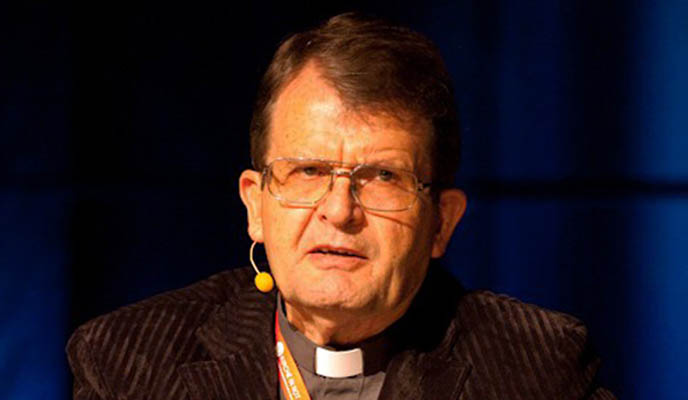
Guest column: Fr Oskar Wermter sj
“You must say your prayers and be a good boy,” our little ones are admonished. Without our “dear Lord” we cannot be “good” and “well-behaved”.
People who never turn to God have no morals, do not get along with their peers, do not respect their brothers and sisters, or so some people of faith tend to think. “If there is no God, how do we know the way?”
People who do not believe in divine power, in the Holy Spirit, the presence of the Creator in our world, do not live in peace and cannot forgive their rivals and enemies.
They no longer have faith in the Creator and his presence among us, and allow themselves to be called “atheists” (people who deny the presence of God in their world).
In Africa, we are believers. “Atheism” is a foreign idea in our culture. Our God is taken for granted.
It is rare that people on this continent deny God as the creator of themselves, of heaven and earth, sun, moon and stars, and of planets in the sky.
Some believers look at “atheists” as monsters, who denigrate nature and have no respect for creation and our Maker.
- Chamisa under fire over US$120K donation
- Mavhunga puts DeMbare into Chibuku quarterfinals
- Pension funds bet on Cabora Bassa oilfields
- Councils defy govt fire tender directive
Keep Reading
The “atheist” I met was a sceptic and agnostic (who can’t make up his mind about whether there is, or is not, a God and Creator), and yet he was worried about a world without faith; he was unhappy about a universe that was empty, had no presence of the divine and creative spirit.
Even though he was half an atheist himself, he did not trust people who are not aware of the Spirit that enlivens heaven and earth, gives light and understanding to human beings and life to their companions in this world, animals great and small, plants in our forests and fields.
He suspected non-believers of having no morals, no ethical code and no respect for a law which we accept as simply given.
He was frightened by the prospect of a spiritual wasteland without Divinity and divine rules and laws, and the chaos and lack of direction this would mean for the inner life of many of us.
The Spirit challenges us to respond to the Word of God. A divine absence would leave us in darkness, deprived of light. We do not wish to be loners lost in this world.
We live in community and as members of a family. The Spirit that guides us reaches out to us. We belong to him. We are his children, his brothers and sisters.
He shares many gifts with us. This familiarity is to be used in our communication with our Lord and Creator. This is the sacred environment where we live.
The creative Spirit of this world tells us that “Our Lord and God is not far away from us. For in him we live and move and have our being” (Acts 17:25-28).
If the Divinity has emigrated from our world and His Spirit is no longer found in our hearts, are we not without the light which used to be given to us as well as reverence for creation, and all creatures? “If there is no God, anything goes.”
If the Creator is no longer present, what stops us from committing murder in a world that has no owner and is no longer in the hands of its Creator?
Does it not frighten us, if we see random high school massacres and gunmen shooting any passer-by, “just for fun”?
What guidance can we give our leaders, who rely on the killing machines of their armies and on nuclear armament for maximising terror and intimidation?
There are rules of ethics which have binding power, even if they have not been passed as positive law in Parliament.
“You must not kill” is part of “natural law”, which we must adhere to, it is an ethical conviction, which we have been born with. The 10 Commandments are familiar, even to biblical illiterates.
To my surprise even atheists and non-believers get worried if such ethical convictions have no longer any force to protect human life, human dignity and the mutual respect that ought to bind a man and woman together in marriage and family.
Are we concerned about who gave the order to shoot? Shooting innocent bystander is evil, plain and simple, even if some State law justifies it.
Does not our conscience tell us: “Do not kill?” Is the human heart not formed so as to be the voice of that ultimate authority?
If the universe, with its myriad of stars, is empty and devoid of a divine presence, will conscience ever speak to us about justice, love and forgiveness?
Is it possible for a person of no religious convictions to have a conscience? Yes, I think so.
Perhaps an atheist with a conscience is preferable to a devout church member without one.
But it is more likely that the absence of the divine truth will leave us without humanity, respect for life, the dignity of women and the responsibility of men.
“Let there be light” for us to see the path our Lord is showing us. We need the divine presence to hear the voice of conscience and truth.
Fr Oskar Wermter is a social commentator. He writes in his personal capacity.











